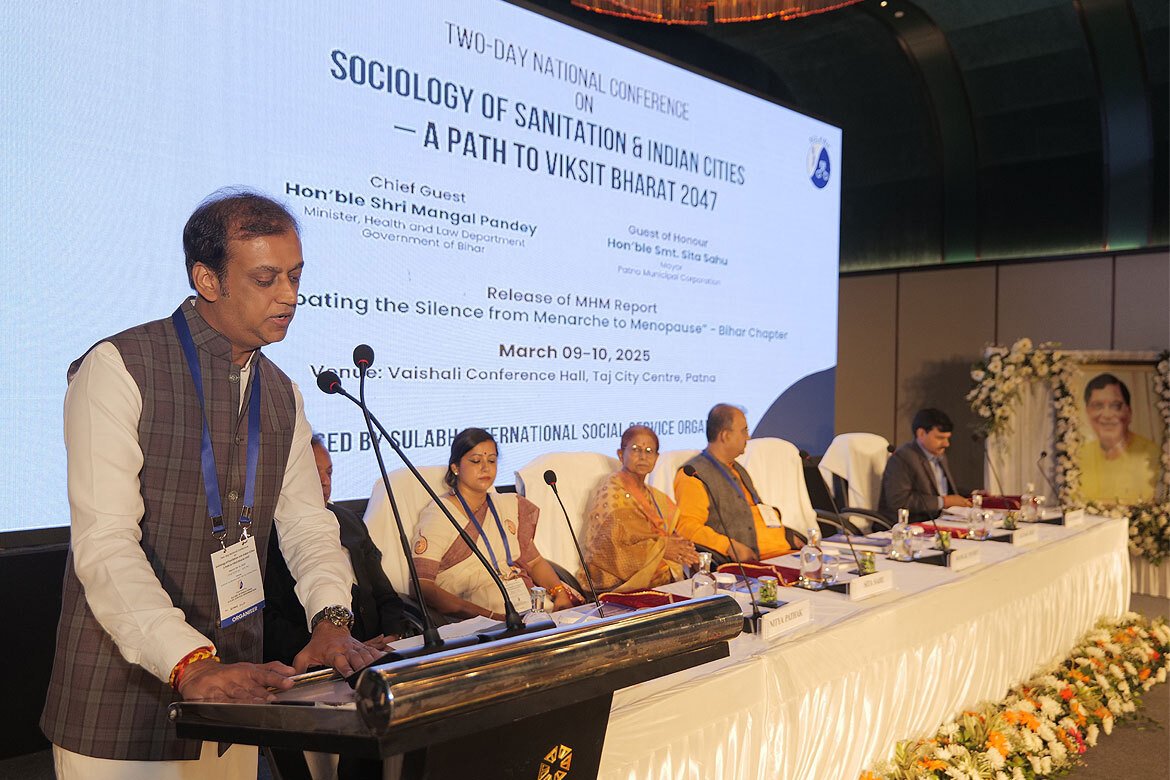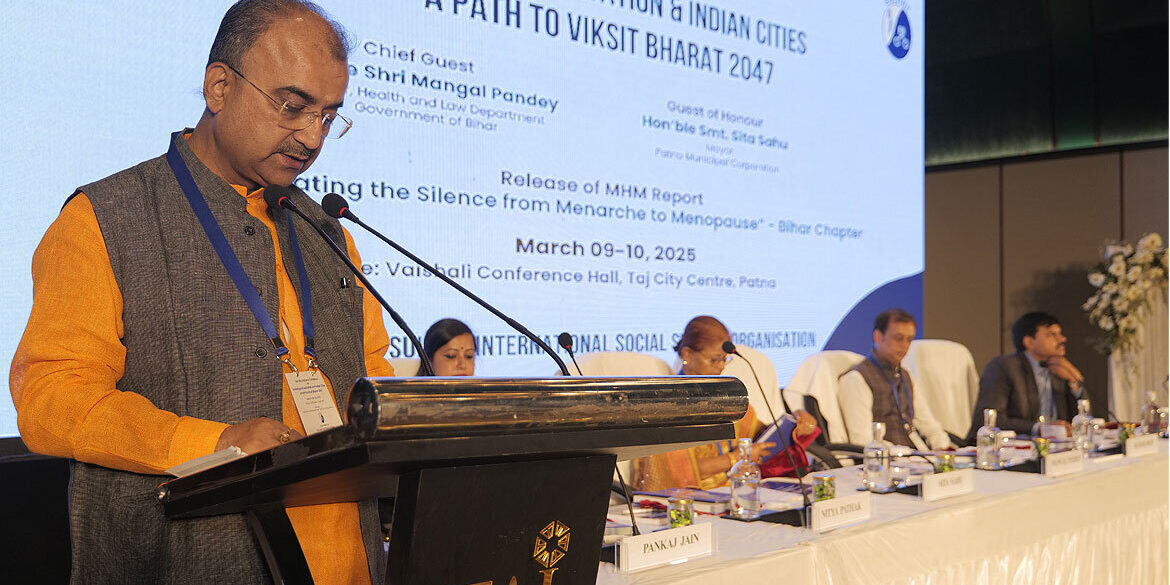Sulabh International recently organized a two-day conference titled “Sociology of Sanitation and Indian Cities: A Path to Viksit Bharat 2047” on March 09–10, 2025, in Patna, Bihar. The event was inaugurated on March 9, 2025, by Bihar Health Minister Hon’ble Shri Mangal Pandey and highlighted the crucial role of smaller cities in India’s journey towards becoming a developed nation by 2047.
During the inaugural session, Hon’ble Minister unveiled the “Bihar Chapter of Sulabh’s Research on Menstrual Hygiene Management (MHM) in India.” This comprehensive report explores the challenges and policy gaps concerning menstrual hygiene in Bihar, offering actionable recommendations to improve the well-being of women and girls. Also present on the dais during the inaugural session was Smt. Sita Sahu, Hon’ble Mayor, Patna Municipal Corporation.

In his address to the audience, the Hon’ble Minister said, “It is an honor for me to address this esteemed gathering, where we are all united by our shared commitment to sanitation, urban development, and the well-being of communities.
Today, we have gathered at a historic site. It is on this land of Bihar that Dr Bindeshwar Pathak initiated the Sulabh Movement—an initiative that not only transformed the lives of countless women who were once engaged in manual scavenging but also reshaped India’s approach to sanitation.
Dr Pathak’s sociological study of sanitation taught us that sanitation is not merely limited to toilets; rather, it is deeply connected to human dignity and has significant implications for health and other developmental goals.
It is most fitting that this conference is being held in Patna, where this journey first began. Sulabh International could not have given a greater tribute to Dr Pathak than by organizing this event here. I extend my heartfelt appreciation to Mr. Kumar Dilip, President of Sulabh International, for this initiative. Let us all pledge to work with complete dedication to carry forward his vision.”
Kumar Dilip, President of Sulabh International, in his welcome address, emphasized the significance of initiating discussions on sanitation and urban sustainability in rapidly growing cities like Patna. He highlighted that achieving the vision of Viksit Bharat 2047 hinges on the equitable growth and prosperity of tier-2 and tier-3 cities.
The conference convened a diverse group of stakeholders, including policymakers, urban planners, sanitation experts, researchers, and municipal commissioners from cities like Indore and Patna. These participants engaged in in-depth discussions on sustainable sanitation solutions, innovative waste management strategies, and policies aimed at fostering resilient urban development.
A focal point of the event was the emphasis on improving education and awareness regarding menstrual hygiene, particularly in rural areas. The report stressed the importance of involving multiple stakeholders—women, community leaders, and policymakers—to challenge and change negative perceptions surrounding menstruation.
In summary, the conference served as a crucial platform to deliberate on the future of urban sanitation and waste management in India, with a special focus on the contributions of smaller cities to the nation’s development goals towards 2047.
Media Coverage:







